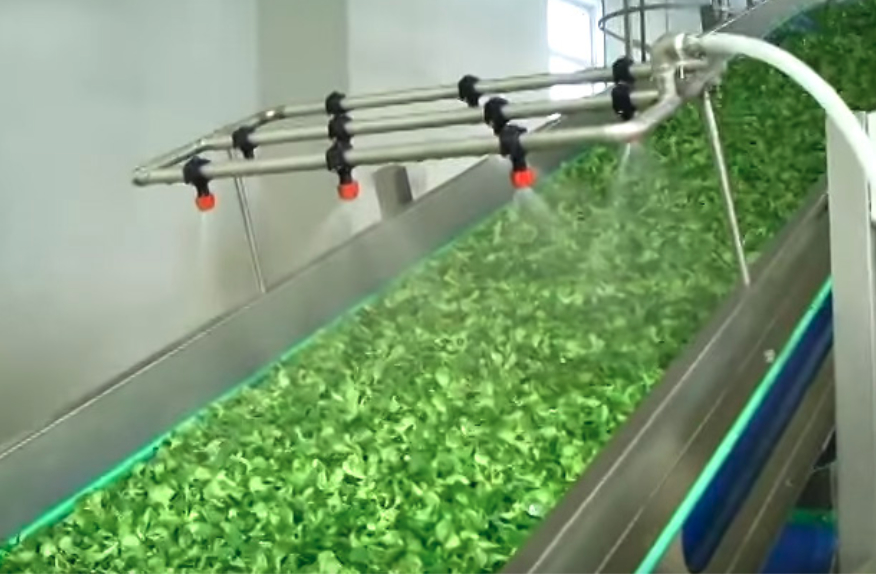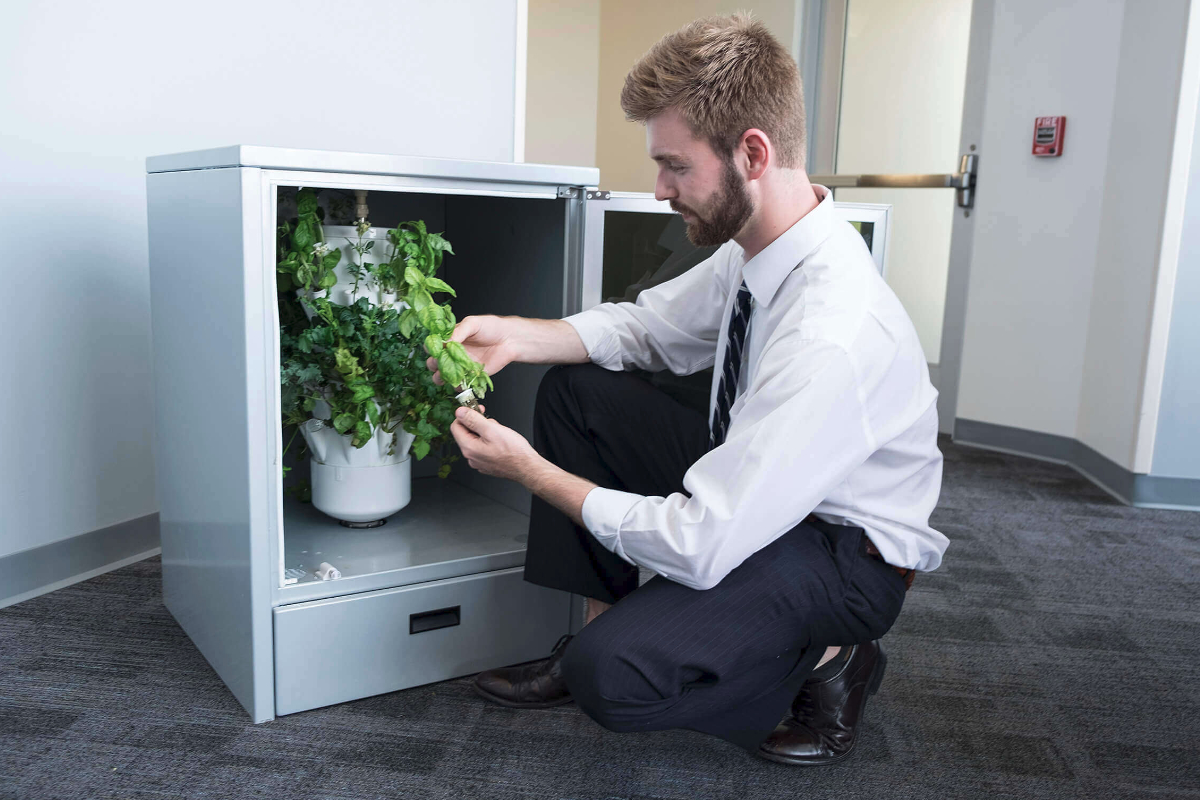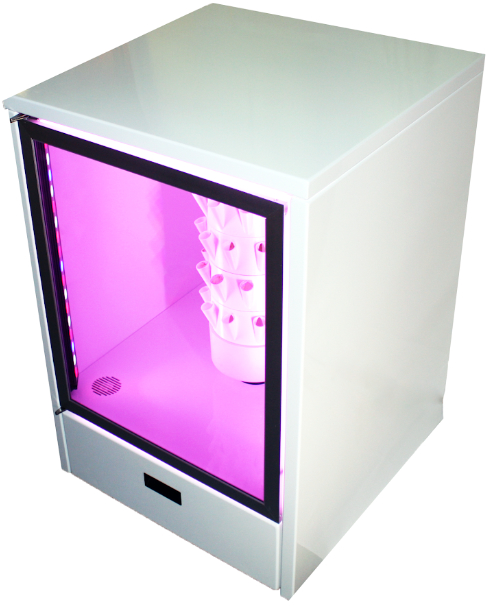NEW ORLEANS — A solution for safer salad greens and “a Keurig for food” were winning concepts awarded at the IFTNEXT Food Disruption Challenge.
Of 75 applicants, 5 were selected to participate in a mentoring program and live pitching competition held June 4 at IFT19, the Institute of Food Technologists’ annual meeting and food expo in New Orleans. The start-ups featured breakthrough innovation across food safety, food ingredients, agriculture, nutrition and sustainability.
“We need disruption, as uncomfortable as it might be, to create a more sustainable future,” said Pam Coleman, president-elect of I.F.T.
The panel of judges included Christian Brown, managing director of NOLA Holdings, L.L.C.; Jamie Leclerc Tully, food scientist and entrepreneur; Jeff Grogg, founder and managing director of JPG Resources; Robert Lalka, executive director of the Albert Lepage Center for Entrepreneurship and Innovation at Tulane University; Jon Atkinson, chief executive officer of The Idea Village; and Tracy Landau, founder, president and chief brand strategist at MarketPlace.
En Solucion, Inc., Austin, Texas, received a $25,000 cash prize and Future Food Disruptor of the Year award. The company was founded “to develop technology that can keep healthy food healthy,” said Kenton Harmer, c.e.o. of En Solucion.
Traditional post-harvest chlorine wash for fruits and vegetables is unreliable and harmful to workers, Mr. Harmer said.
 “Common practice (for washing produce) is to use extreme concentrations of chlorine, making the wash water horrible for the workers, hazardous in the environment and yet still inconsistent at killing pathogens,” he said. “Yet, chlorine can be all that stands between $5.5 billion of packaged salad sales and the existential business threats that appear when salad makes people sick. The makers of packaged salad need a better solution for the post-harvest wash.”
“Common practice (for washing produce) is to use extreme concentrations of chlorine, making the wash water horrible for the workers, hazardous in the environment and yet still inconsistent at killing pathogens,” he said. “Yet, chlorine can be all that stands between $5.5 billion of packaged salad sales and the existential business threats that appear when salad makes people sick. The makers of packaged salad need a better solution for the post-harvest wash.”
En Solucion has designed a water solution containing nanobubbles of ozone gas.
“When we leverage the nano scale with the power of the ozone, we can reach and kill more pathogens without exposing workers or the environment to high toxicity chemicals,” Mr. Harmer said. “Better for the workers, better for the environment, better for the consumer. This adds up to significant business value for our customers.”
En Solucion has received funding from the Food and Drug Administration and the U.S. Department of Agriculture, Mr. Harmer said. The company has a provisional patent for its technology, which it intends to license to a manufacturer.
“We want to build the I.P., we want to show that this works … and then we want to license it to someone who’s really good at manufacturing because our passion is about sitting and looking at these vexing problems in the food system and looking for systemic solutions, not managing a manufacturing team and a marketing team and a sales team,” Mr. Harmer said.

Photo: Purdue Research Foundation
Seeds of change
The winner of a $5,000 cash prize and the people’s choice award for Future Food Disruptor of the Year was Heliponix, L.L.C., Evansville, Ind.
“Our goal is to turn everyday residential consumers into self-sustaining farmers through automated hydroponics appliances called GroPod,” said Scott Massey, co-founder.
Similar products on the market produce lower yields and are not energy efficient, Mr. Massey said.
“Our … design has tripled the yields of the nearest competitor of equal square footage with half as much power consumption, and it’s the first self-cleaning consumer apparatus on the market to ensure food safety,” he said.
 The GroPod, which Mr. Massey described as “a dishwasher-sized unit,” grows leafy greens, culinary herbs and microgreens using seed pods.
The GroPod, which Mr. Massey described as “a dishwasher-sized unit,” grows leafy greens, culinary herbs and microgreens using seed pods.
“These seed pods are how we really make money because we’re a Keurig for food,” Mr. Massey said. “We’ve built a recurring revenue subscription service that the users first specify the quantity and seed type of the pods sent to their households on a monthly basis, all fertilizers and shipping included.”
Heliponix has sold 12 units and is accepting preorders for 200 units to be sold this year, Mr. Massey said. The appliances cost $2,000, but the company expects to lower the price to $1,000 or $1,500 as manufacturing costs decline.
“This is something we truly see as becoming a mainstream appliance and not a niche luxury product,” Mr. Massey said.
Other finalists in the Food Disruption Challenge at IFT19 included:
- Chinova Bioworks Inc., developer of chitosan, a preservative extracted from mushrooms;
- Gabanna, developer of ingredient solutions using the East African Highland green cooking banana; and
- Yarok Microbio, developer of a technology for fast detection of harmful bacteria, including E. coli, Listeria and Salmonella, for the food industry.




